Umicore Precious Metals Refining operates as one of the world's largest precious metals recycling facilities. This business unit of Umicore is the world market leader in recycling complex waste streams containing precious and other non-ferrous metals.
We offer eco-efficient recycling and refining services for precious metal bearing materials such as by-products from other non-ferrous industries (e.g. drosses, mattes, speiss, anode slimes), consumer and industrial recyclable products (e.g. electronic scrap, spent auto catalysts , spent industrial catalysts, sweeps and bullions).

We recover and sell precious metals (silver, gold, platinum, palladium, rhodium, iridium, ruthenium), special metals (indium, selenium, tellurium), secondary metals (antimony, tin, bismuth) and base metals (lead, copper, nickel). We put them back in the cycle for a better life.
Process
Comprehensive and unique set-up based on innovative chemistry and metallurgy
Our recycling operations are basically streamlined along two processes:
- The Precious Metals Operations (PMO) focus on fast throughput and maximized yields at optimized cost. They are fully tuned for the efficient refining of an extended range of complex and valuable raw materials, containing precious metals.
- The Base Metals Operations (BMO) focus on flexibly processing by-products from the PMO at the lowest possible cost and with optimal throughput times.
Both PMO and BMO enhance the basic success factors of our business model: flexibility, reliability and complexity.
Major investments have been completed, to develop, install and run new chemical and metallurgical operations, completely shifting Hoboken's focus from concentrates to recyclable materials and industrial by-products. In other words, over the past decade a completely renewed plant has been built on site.
Our processes are based on complex lead/copper/nickel metallurgy, using these base metals as collectors for precious metals and other metals, so called "impurities", such as antimony, bismuth, tin, selenium, tellurium and indium. The main advantage of our innovated plant is increased productivity, combined with greater efficiency, which results in maximized metal recovery rates and generating optimum precious metals yields.
Sampling and assaying
The success of our operations depends largely on the quality of sampling and assaying.
The extended, continuously changing mix of complex feed materials such as e-scrap, catalysts, tankhouse slimes... makes sampling and assaying a key success factor for sustainable precious metals recycling: our customers are entitled to and get maximal value for their materials!
We continuously innovate our sampling and assaying processes in close collaboration with our suppliers and measure our success through their feedback. Most of our sampling and assaying processes and technologies are in-house developed. We aim for maximal accuracy and optimized handling costs, through automation and information management.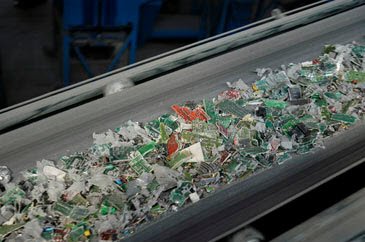
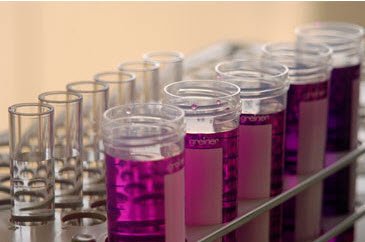
Our main sampling facilities are at Hoboken close to the operations. The full range of industrial by-products and recyclable materials are sampled on site. By means of an "à la carte" approach, each and every material gets its own dedicated sampling process, mostly in dedicated equipment.
With a mind set on automation, efficiency and fast throughput, human intervention and sampling risks are minimized. Through internal and external, independent assessments we create a leverage to facilitate sustainable operations.
Precious Metals Operations
The main processing steps of the Precious Metals Operations are the smelter, the copper leaching and electrowinning plant and the precious metals refinery. The operations are designed in such a way that raw materials can enter the flowsheet at the most optimal process step, determined by their physical aspect, their analytical fingerprint and their (precious metals) value.
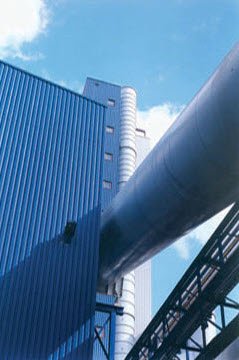
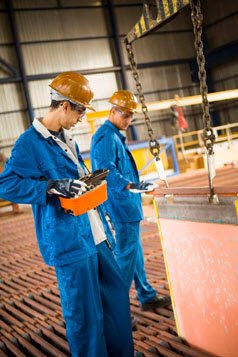
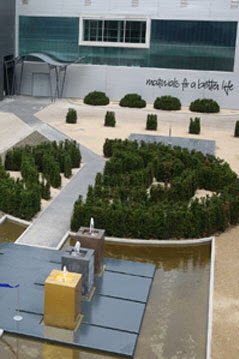
The smelter furnace (first step in the Precious Metals Operations) uses the Isa smelt, submerged lance combustion technology. This involves injecting oxygen enriched air and fuel in a molten bath. Umicore is the only company to apply this technology on such a large scale with such a variety of materials. The smelter separates precious metals in a copper bullion, from mostly all other metals, concentrated in a lead slag, further treated at the Base Metals Operations.
After leaching out the copper in the leaching and electrowinning plant, the precious metals are collected in a residue that is further refined at the precious metals refinery.
Our precious metals refinery combines classical methods (cupellation) with unique in-house developed processes (silver refinery), to enable Hoboken to treat all possible variations and ratios of precious metals (silver and gold) and platinum group metals (platinum, palladium, rhodium, iridium and ruthenium).
Base Metals Operations
The main processing steps of the Base Metals Operations are the blast furnace, the lead refinery and the special metals plant.
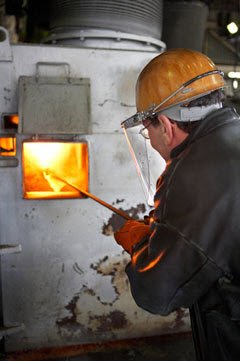
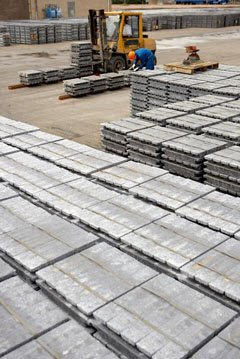
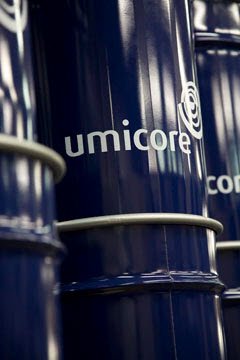
The blast furnace reduces the oxidized lead slag from the smelter together with high lead containing third party raw materials and transforms them into impure lead bullion, nickel speiss, copper matte and depleted slag.
The impure lead bullion, collecting most of the non-precious metals, is further treated in the lead refinery. Besides pure lead, the process generates special metals residues. These are, together with the main side-streams of the Precious Metals Operations, further refined into pure metals and metal salts in our special metals refinery to produce high quality indium, selenium, tellurium and antimonate. Some intermediates are tolled out to dedicated companies to produce tin and bismuth.
After leaching the nickel out of the nickel speiss and turning it into nickel sulfate, the remaining precious metals residue is treated at the precious metals refinery.
The copper matte is returned to the smelter.
The depleted blast furnace slag is physically calibrated for use in the concrete industry or used as dyke fortification substance.